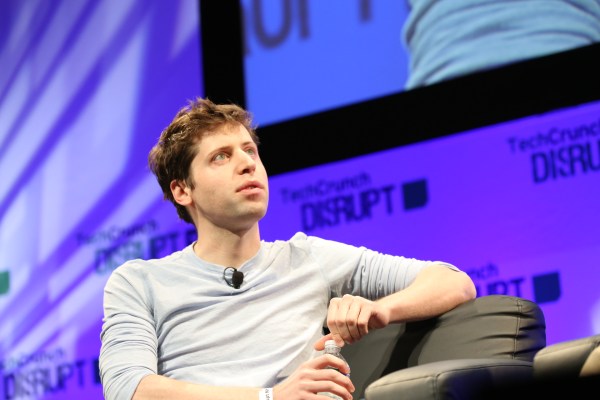“A lot of people ask what’s different this time,” said Sam Altman, who took over Y Combinator from Paul Graham at the beginning of the year. “But the main thing I’m trying to do is keep things running the same way. YC is on this unbelievable trajectory.”
Today’s Demo Day marks the first batch of companies that Altman has shepherded through the entire program, from selection through launch. (There was a previous batch that he oversaw earlier in the year, but he took over Y Combinator after the companies had already been chosen.)
Everything seems mostly the same. There’s the same mix of venture capitalists and angels crowding the Mountain View Computer History Museum auditorium, listening to dozens of pitches before connecting during the fundraising frenzy that follows demo day. There are the same dozens and dozens of T-shirted founders pitching on-stage with presentations crafted after hours of practice.
But there are a few noticeable differences.
For one, this is the first time that Y Combinator has supported biotech companies. There are also a few energy and quantum computing plays. Even a nuclear battery company.
“YC has never been in the software business. YC is in the business of funding huge companies,” Altman said. “We’ll continue to fund the best startups in the world even though the specific areas and markets may change as technology evolves. Many years ago, we started funding hardware companies and people people thought it was as crazy at that time. Actually, we were looking at the cost and cycle time it took to build a hardware company. We think the same situation is happening with biotech as costs come down.”
He’s also started doing outbound recruiting for Y Combinator instead of more passively letting companies come to the program and apply. Altman personally recruited Ginkgo BioWorks, which quickly engineers organisms, out of Boston through eight separate meetings.
“In a new area, it may not be obvious that YC can add a lot of value. But now we’ll have biotech companies tell future biotech companies that they should join,” he said. “Then again, the companies that I think seem to be generating most interest among investors are still traditional software companies.”
Altman also initiated a series of Startup School events globally where experienced entrepreneurs can share lessons with prospective founders. It’s a hugely popular event every fall in Silicon Valley; they’ve added a few stops in New York and London.
While the interviewing and selection process remains mostly the same, Altman grouped companies with different Y Combinator partners so that founders work with the same advisers throughout the whole process. There are a little over 10 partners now, compared to the half-dozen or so that have worked with Graham over the past several years.
They’ve also built a lot of internal software to track and assist companies, including some Demo Day software that will help investors and startups connect after today.
Altman also refined some of the rules are around personal investments from YC partners. He stopped making personal investments from his vehicle Hydrazine Capital when he joined full time, although he says he will still do things in “very exceptional” cases. The other partners are prohibited from making personal investments until after Demo Day.
He’s also sticking to Graham’s opinion that Y Combinator shouldn’t do a follow-on fund.
“When you have accelerators that are basically feeders for Series A funds, it can be awful. Every founder that doesn’t raise an A round from the fund basically has no chance of moving on. It’s a huge negative signal,” he said. “Perhaps YC could do very late-stage investing some day because there’s no signal risk there.”
And as for Graham?
“He’s still advising startups,” Altman said. “He came in last night, but not today. He gets mobbed.”
